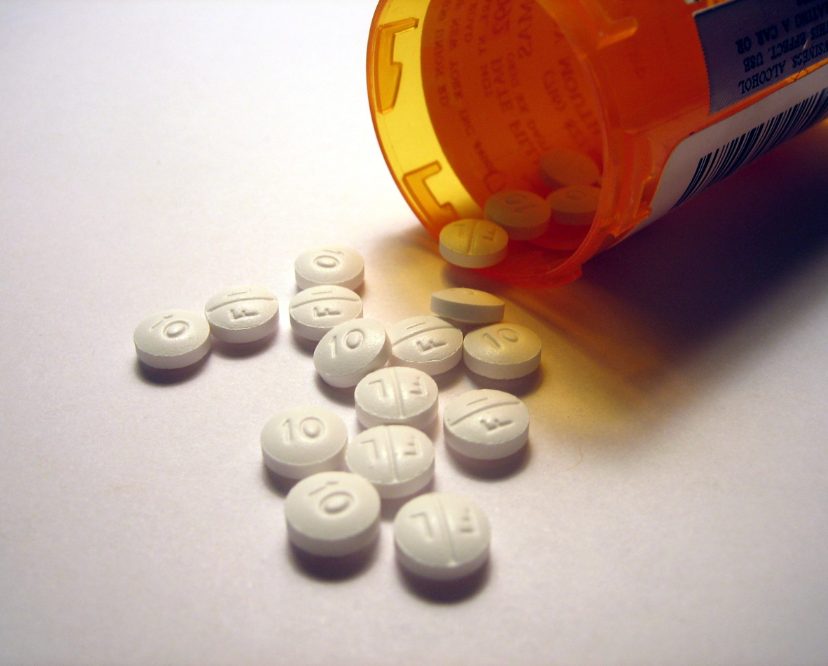Understanding Postpartum Depression: A Simple Guide for New Moms Seeking Calm and Support

As a health coach, and creator of icalm, a natural supplement developed to help relieve stress and anxiety, I often hear from moms seeking gentle, effective support for the emotional challenges that come with postpartum. Many ask me if icalm stress relief shots can help with postpartum depression, and while the answer is yes, there's more to the story.
Postpartum depression is a deeply personal and sometimes complex experience, one that deserves a compassionate, well-rounded approach. We formulated icalm with ingredients known for their calming and mood-stabilizing effects, like L-theanine and magnesium glycinate, which support neurotransmitter balance and relaxation. However, overcoming postpartum depression requires a mix of support, including lifestyle changes, community, therapy, and, yes, supplementation to help bring comfort and balance back into your life.
My own journey with stress and anxiety, combined with a background in integrative health, is what inspired me to create icalm in the first place. I know firsthand the toll that mental health challenges can take and the importance of having tools you can trust. In this article, I'll dive into understanding postpartum depression (PPD), a condition that affects around 1 in 7 new moms, according to experts at the Mayo Clinic and Harvard Health.
I’m here to break it all down simply, with insights from neuroscience to explain why you might feel this way and, more importantly, how to find support and healing.
What is Postpartum Depression?
Postpartum depression is different from the "baby blues," which many new moms experience a few days after giving birth. The baby blues bring mood swings, crying spells, and irritability, but they usually fade after a couple of weeks. Cleveland Clinic highlights that postpartum depression lasts longer and can be more intense, making new moms feel isolated and disconnected. PPD can start within a few weeks to up to a year after childbirth, affecting not only the mom but her entire family.
What Causes Postpartum Depression?
Several factors contribute to postpartum depression, and here are the main ones:
1. Hormone Fluctuations
Hormone changes right after birth can trigger PPD. Levels of estrogen and progesterone drop rapidly, which affects mood. Johns Hopkins Medicine explains that these shifts can disrupt chemical balance in the brain, impacting mood stability. Neuroscience research shows that these changes can especially affect neurotransmitters, leading to feelings of sadness, irritability, and anxiety.
2. Lack of Sleep
Newborns need constant care, which means moms often miss out on sleep. Sleep is crucial for brain health, and a lack of it can affect the prefrontal cortex, which controls mood and decision-making. Stanford Medicine shares that poor sleep can weaken resilience to stress, making it harder to manage emotional challenges.
3. Isolation and Identity Changes
Motherhood can bring on feelings of loneliness or loss of identity, especially if moms feel separated from their old lives. Neuroscientists explain that loneliness affects brain chemistry, reducing “feel-good” chemicals like serotonin and dopamine. This, in turn, can make it harder for new moms to lift their spirits, leading to a deeper struggle with depression symptoms.
Recognizing the Signs of Postpartum Depression
So, how can you tell if it’s more than just a rough patch? Here are common symptoms to look out for:
- Persistent feelings of sadness
- Loss of interest in things that used to bring joy
- Difficulty bonding with your baby
- Mood swings and irritability
- Feelings of guilt or inadequacy
- Low energy and lack of motivation
- If you or someone you know is experiencing these symptoms, it’s important to seek help. Postpartum depression is a serious condition, but it is also treatable. Talking to a healthcare professional can provide guidance and support. They may recommend therapy, medication, or a combination of both to help manage the symptoms.
- In addition to professional help, there are several self-care strategies that can make a difference. Connecting with other mothers can be incredibly beneficial. Sharing experiences and feelings can help alleviate the sense of isolation. Joining a support group, whether in person or online, can provide a safe space to express concerns and receive encouragement.
- Taking time for yourself is also crucial. Even short breaks to engage in activities you enjoy—like reading, walking, or practicing a hobby—can help recharge your emotional batteries. Prioritizing sleep, when possible, and maintaining a balanced diet can also support your mental health.
- Remember, it’s okay to ask for help. Whether it’s from a partner, family member, or friend, having a support system can make a significant difference. You don’t have to navigate this journey alone. By recognizing the signs of postpartum depression and taking proactive steps, you can work towards feeling more like yourself again. Your well-being is important, not just for you, but for your baby and your family as well.Changes in appetite or sleep (either too much or too little)
- Thoughts of self-harm or harming your baby
If these symptoms persist for more than two weeks, it may be time to talk to a mental health professional.
The Brain Science Behind Postpartum Depression
The brain’s limbic system, which controls emotions, undergoes significant changes during pregnancy and postpartum. Neuroscience studies from the National Institute of Mental Health show that during this period, the amygdala, a part of the brain that processes emotions, is often overactive, making moms feel especially sensitive or overwhelmed. Meanwhile, the prefrontal cortex, which regulates emotions, takes time to readjust after childbirth, making it harder to balance emotional responses. But the good news? The brain has incredible adaptability (neuroplasticity), and with the right support, it can regain balance.
Practical Steps for Recovery
1. Talk to Someone
Talking to someone, whether a friend, family member, or mental health professional, can help lighten the emotional load. Cognitive behavioral therapy (CBT) helps reframe negative thoughts, making it easier to manage depressive symptoms.
2. Exercise
It might seem tough, but even a gentle walk can boost mood by releasing endorphins. Harvard Health reports that physical activity helps the brain produce serotonin, essential for mood regulation and energy.
3. Consider a Support Group
Hearing from other moms facing similar challenges can provide comfort and support. Many hospitals and online platforms offer support groups just for postpartum moms. In the icalm Inner Circle Facebook Group, members can connect, share, and support one another.
4. Prioritize Sleep
Good sleep is crucial for brain function. Accepting help from family and friends or napping when your baby naps can help restore energy. Remember, the brain needs rest to repair itself, and even small naps can make a difference.
Final Thoughts on Recovery
Recovering from postpartum depression is a journey that takes patience and self-compassion. Remember, bringing a new life into the world is a huge accomplishment, and it’s natural to feel overwhelmed. By taking time to care for yourself and reaching out for support when needed, you can begin healing. Postpartum depression affects millions, but with knowledge, support, and the right treatment options, you can find balance and joy again.
With Love,
Daniela Suarez
Co-Founder & CEO, icalm Health
For all my Zen Ninjas: Stay grounded, stay calm.









Leave a comment